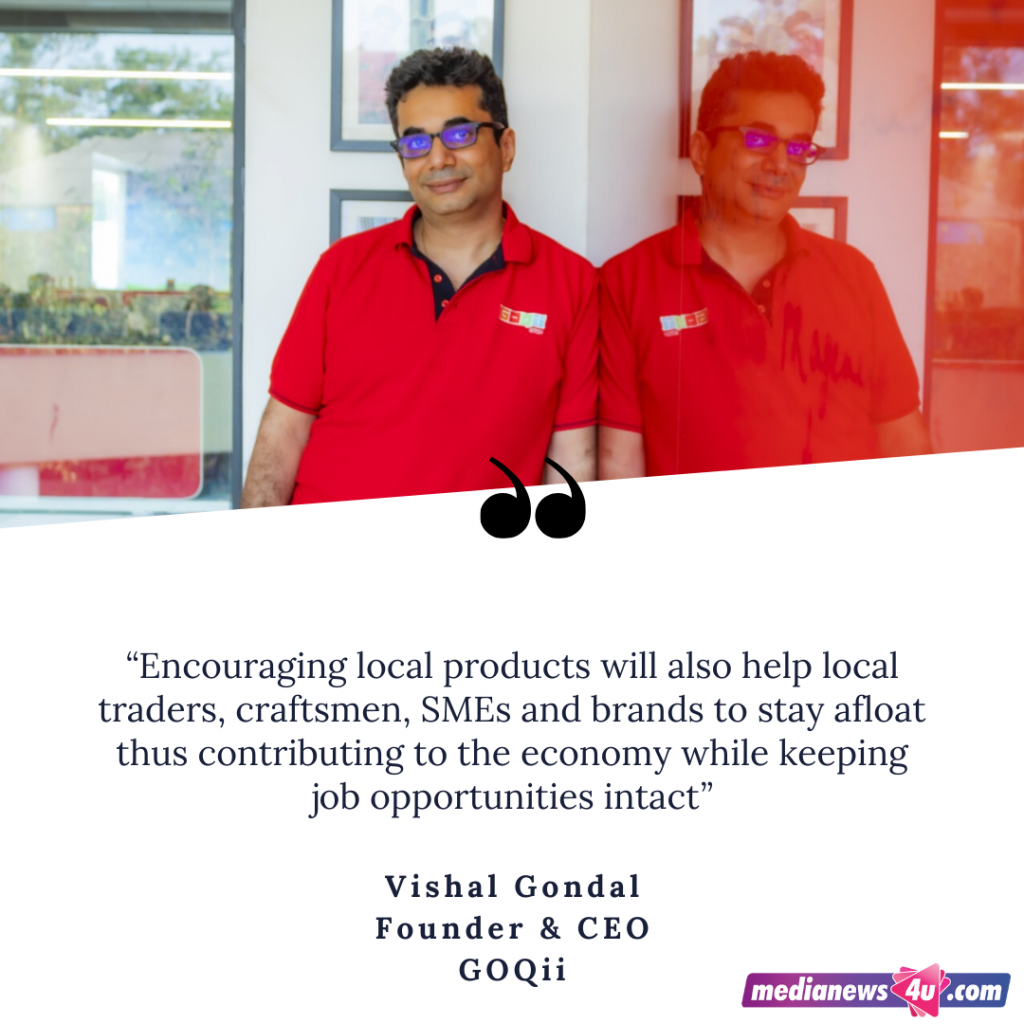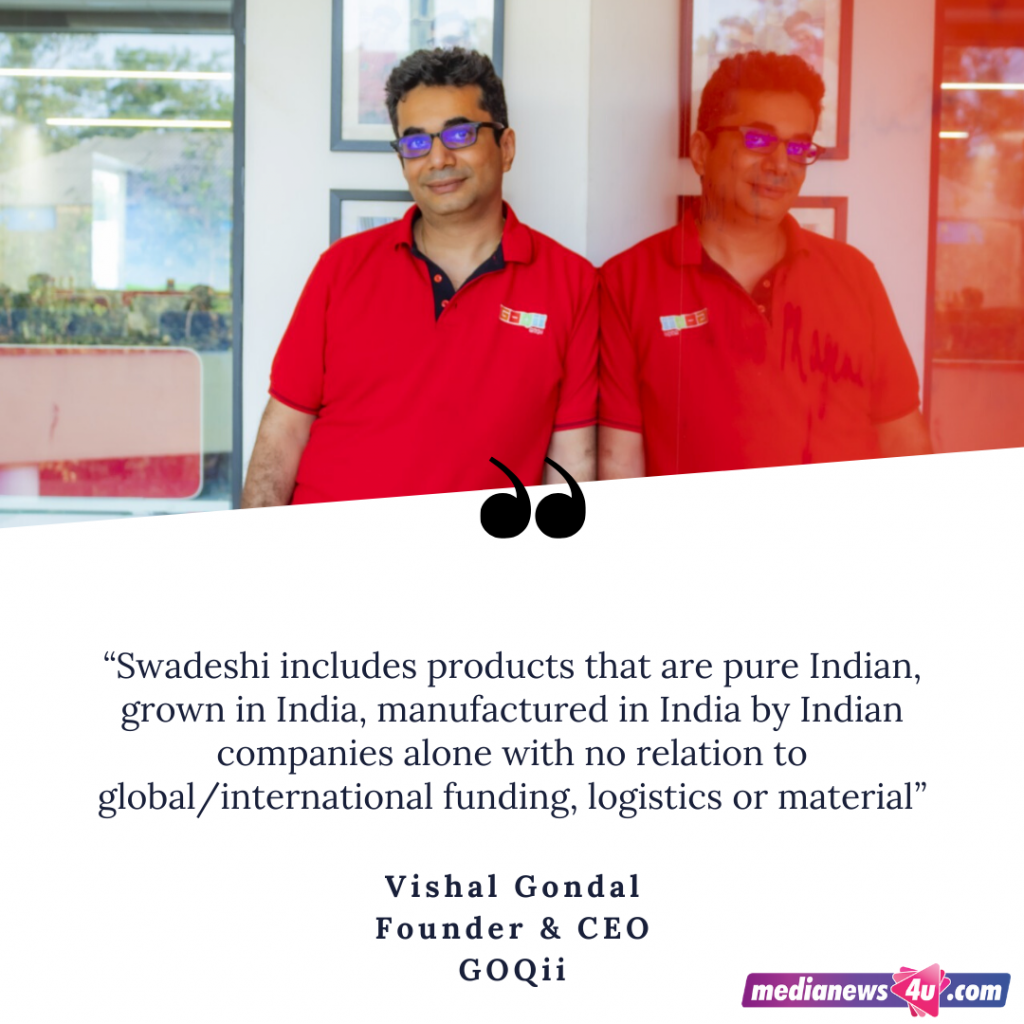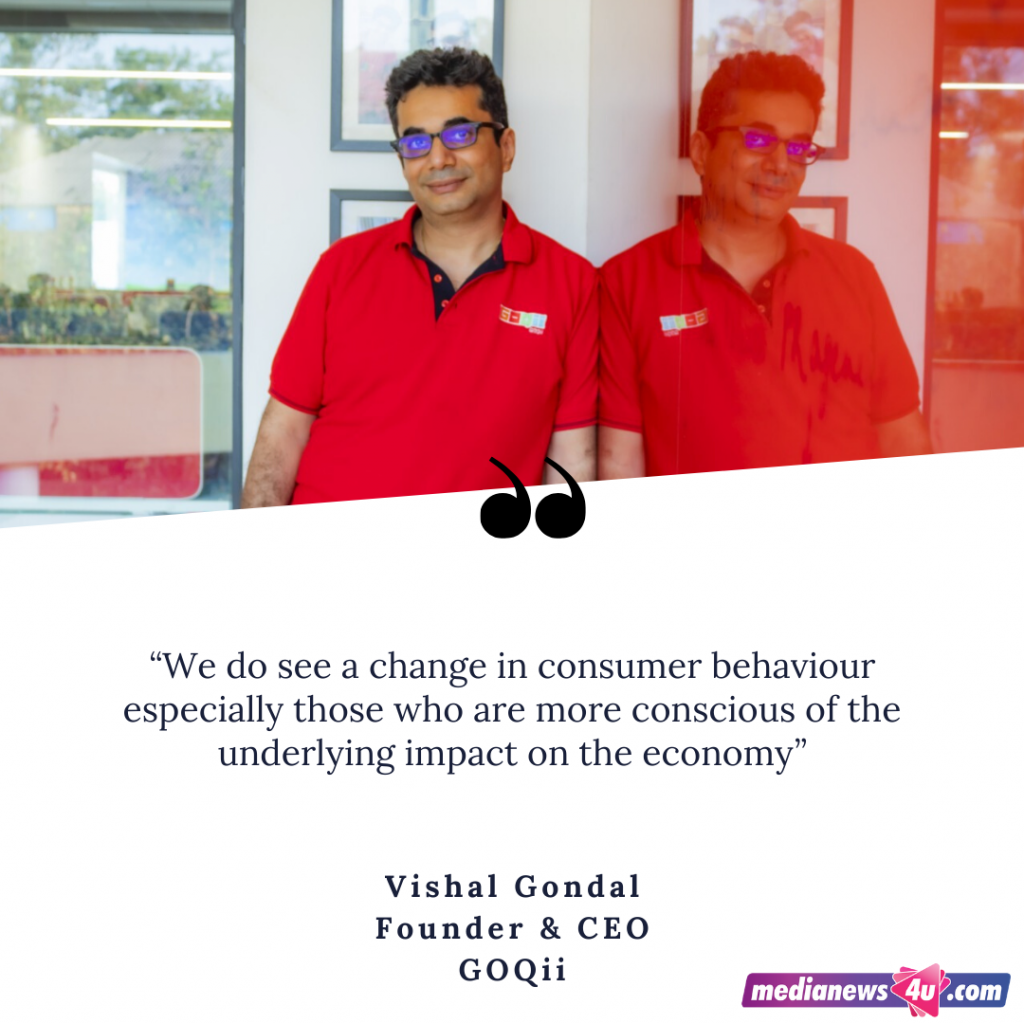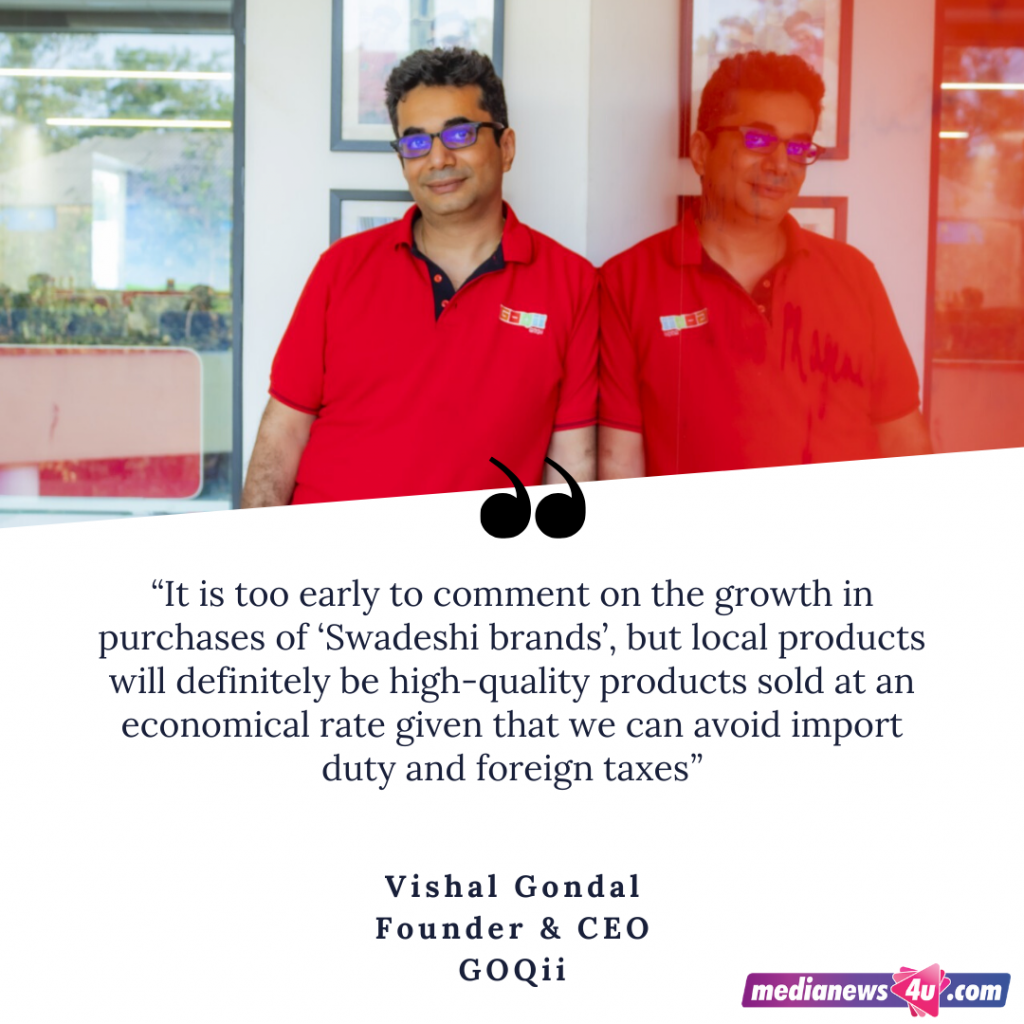Healthcare and the associated industries stood up in the testing times during the global pandemic. India has produced PPE kits and masks and exported Hydroxychloroquine to the rest of the world. Related sectors like the preventive healthcare platforms have also stood and fought the pandemic with all their might to help the people of the country.
The call ‘Be vocal for local’ call of course started a debate on what is actually local, are big MNCs established in India, hiring locals and manufacturing here be termed local? Or we are talking about solely Indian brands?
We at MediaNews4u have spoken to people from various sectors, startups, and brand consultants to understand as to what how they have interpreted the term ‘Be Vocal for Local’.
Today we speak to Vishal Gondal, Founder, and CEO, GOQii. GOQii is a smart-tech-enabled, integrated preventive healthcare platform headquartered in California that provides an end-to-end healthcare and wellness experience for users. It offers a wearable fitness band with a mobile-app and personalized remote coaching
How do you interpret the term ‘Be vocal for local’?
We applaud the government’s clarion call to make India self-reliant by promoting manufacturing in India and encouraging Indian products. With businesses taking a hit due to the ongoing pandemic, propagating local products will provide Indian companies that are reeling under crisis, an opportunity to survive and grow amidst a crisis. Encouraging local products will also help local traders, craftsmen, SMEs and brands to stay afloat thus contributing to the economy while keeping job opportunities intact. We at GOQii, at the moment, are manufacturing our latest wearable, the GOQii Vital 3, World’s first wrist band with sensors to detect body temperature- An Early Symptom of COVID-19 in China. The GOQii Vital 3 – Tracks all-day activity like steps, distance, calories burned, Active time, Auto Sleep Tracking.

Measure Body Temperature, Measure Blood Pressure 24X7 Heart Rate Monitoring Multiple Exercise Mode, Phone Notification such as messages, call, WhatsApp, Facebook, etc. Other Features like Alarms, Inactivity Alerts, and Weather Info. The band is Water Proof, has a Build -in USB charger and up to 7 days Battery life

However, we are also evaluating manufacturing options in India to support ‘Make in India’ and promote PM Modi’s appeal to ‘Go vocal for local’.
The difference between Local & Swadeshi?
Local products will be those products that are locally manufactured in India either by Indian companies or multinationals. Thus, indigenous products are made in India irrespective of whether Indian company or not, will be called local. In terms of Swadeshi, we are all well-versed with Khadi and how it is synonymous with India all across the globe. Swadeshi includes products that are pure Indian, grown in India, manufactured in India by Indian companies alone with no relation to global/international funding, logistics or material. In short, Swadeshi means ‘locally made’. In order to make ‘Atmanirbhar Bharat’, the government is promoting local and swadeshi products.

How will companies which may be global but have been in India, produce here and employ locals will consumers now stop buying these products?
The government has clearly called out that that local does not imply only products made by Indian companies, but also those manufactured in the country by multinationals. The idea is to harness the country’s potential at a time when it is most needed. Consumers will not stop buying these products but will be cognizant of the impact of their purchasing decisions on the economy of the country. The idea is to promote a self-reliant India, to avoid impending economic mayhem. With this announcement, consumers will be more aware of the impact of their purchases and may become more cautious about what they buy and from where. We do see a change in consumer behavior especially those who are more conscious of the underlying impact on the economy.

Are you seeing a spurt in buying of ‘Swadeshi’ brands?
It is too early to comment on the growth in purchases of ‘Swadeshi brands’, but local products will definitely be high-quality products sold at an economical rate given that we can avoid import duty and foreign taxes. The government will also promote Swadeshi brands, and marketing campaigns to that effect can bring about a change in consumer behavior and preferences. What will contribute to Swadeshi will be large government organizations and offices that will shift to swadeshi only. Home minister Amit Shah has already announced that canteens of the central paramilitary forces will only sell indigenous products.


















